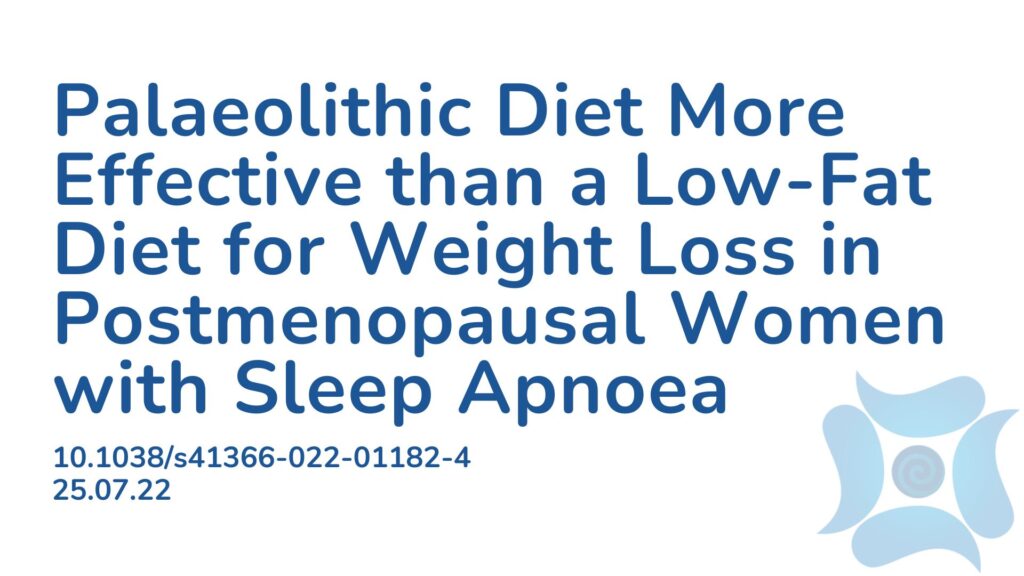Summary: It is estimated that nearly 80% of women with obesity will eventually develop sleep apnoea which impacts just under 1 billion people worldwide. Whilst obesity is a large contributing factor, literature also shows that women after menopause have a risk of developing sleep apnoea which has been attributed to redistribution of fat mass, hormonal changes and age. Reducing weight in the postmenopausal population is recommended to help prevent and manage sleep apnoea. This study aimed to analyse the effect of a paleolithic diet on sleep apnoea symptoms in postmenopausal women who are overweight. The paper found that a substantial decrease (8kg) in body weight was needed to show benefit with sleep apnoea. The palaeolithic diet also showed to be more effective for reducing weight when compared to a low-fat diet.
Abstract:
Background/Objectives: Obesity is the main risk factor for obstructive sleep apnoea, commonly occurring in females who are overweight after menopause. We aimed to study the effect of a palaeolithic diet on sleep apnoea in females with overweight after menopause from the population.
Methods: Seventy healthy, non-smoking females with a mean age of 60 years and a mean BMI of 33 kg/m2 were randomised to a palaeolithic diet or to a control low-fat diet according to Nordic Nutritional Recommendations, for 2 years. The apnoea-hypopnoea index was measured and daytime sleepiness was estimated during the intervention.
Results: The mean apnoea-hypopnoea index at baseline was 11.6 (95% CI 8.6–14.5). The mean weight loss was 7.2 kg (95% CI 5.3–9.2 kg) in the palaeolithic diet group and 3.9 kg in the control group (95% CI 1.9–5.9 kg); p < 0.021 for the group difference. The reduction in weight corresponded to a reduction in the apnoea-hypopnoea index in the palaeolithic diet group (r = 0.38, p = 0.034) but not in the control group (r = 0.08, p = 0.69). The apnoea-hypopnoea index was reduced in the palaeolithic diet group when the weight was reduced by more than 8 kg. Daytime sleepiness according to the Epworth Sleepiness Scale score and the Karolinska Sleepiness Scale score was unaffected by dietary group allocation.
Conclusions: A substantial decrease in body weight of 8 kg was needed to achieve a reduction in sleep apnoea in this small trial of women who are overweight after menopause. The palaeolithic diet was more effective for weight reduction than a control low-fat diet and the reduction in sleep apnoea was related to the degree of weight decrement within this diet group.
Article Publication Date: 25.07.22
DOI: 10.1038/s41366-022-01182-4



